Theme 1: Introduction and background
Topic 1: Introduction – Athlete Experiences
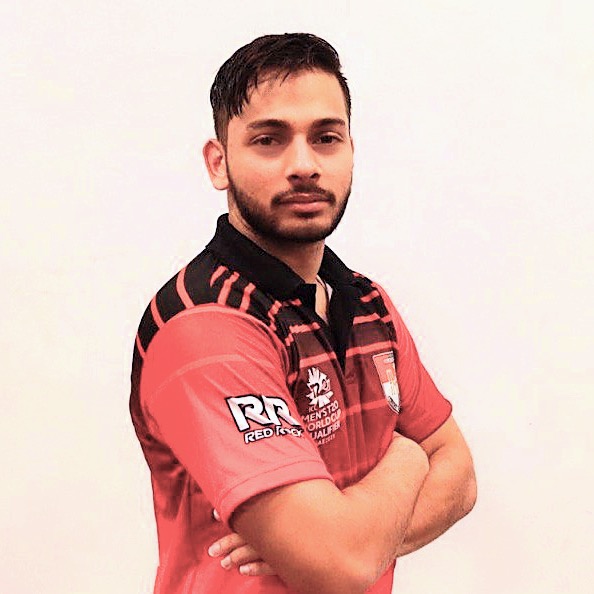
Utsav Rakshit, 23
Sport: Cricket
School: NUS undergraduate, Law and Computing (minor)
What is your daily schedule in university like?
When there is a tournament coming up, we have trainings from 7/8pm to around 11pm almost every day. I go for trainings depending on how much work I have to do, and my sleep cycle is really bad during that period. There was one period when I had a fractured finger, so that was a period where I could actually just focus on my studies.
For law school, the year 1 and 2 curriculum is quite set, and it’s really difficult for the school to really deviate that much, and you have classes almost every day. Once you move to year 3 and 4, you get to choose a lot of electives. So, you can choose modules where you get to write research papers – which means that you can do it more in your free time. In year 3 and 4, it was a lot better for me to manage and I could go for the training sessions as well.
What is one highlight of your student-athlete experience in university?
I think one of the more memorable parts is playing some small role in Singapore’s rise, because Singapore recently broke into the world’s top twenty. Playing some part in that was good. I think the memories really stand out in the long run. Moments with the NUS cricket team, or my club’s cricket team, or just other people you continuously meet and grow such strong bonds with.
What was one major sacrifice you’ve had to make as a student-athlete?
In year 1 and 2, my grades took a toll and I grew some eyebags, but I think looking back, I wouldn’t have had it any other way.
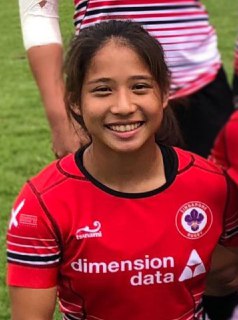
Ng Xuan, 20
Sport: Rugby, Karate
School: NUS undergraduate, Psychology and Life Sciences (NUS Sport Scholar)
What is your daily schedule in university like?
I usually start my day with school. Sometimes, I have 8am classes that go on till afternoon. I will usually head back to hall and take a short nap before training or finish my work. In the evening, I will head down to training, which usually ends about 9pm. I will usually grab dinner with my teammates, or I will just go back to hall. After showering, I’ll lie on my bed for a while because usually I’ll be super tired after training to the point where I can’t move. I’ll rest for about 1 hour, then force myself to get up and prepare for lessons the next day or finish up my work.
What is one highlight of your student-athlete experience in university?
In my first semester, I was very lucky to travel overseas with the rugby team a lot. In that whole semester, it felt like I was half in school, half travelling. Every two weeks, we’ll fly overseas, and for another two weeks, I’ll be in school for a bit. I really experienced what it’s like to be a student-athlete during that period. Before that, I did travel, but only once in a while and not flying back and forth like that.
What was one major sacrifice you’ve had to make as a student-athlete?
I think going to university, one thing I looked forward to a lot was the hall experience. I was very lucky that the NUS Sport Scholarship sponsored my hall stay. But I was travelling training so much, so I really couldn’t commit to the hall activities. Social life was something I had to sacrifice. However, I was very lucky because my hall mates and professors were very supportive. They would encourage me to just go for my commitments and fill me in later on.
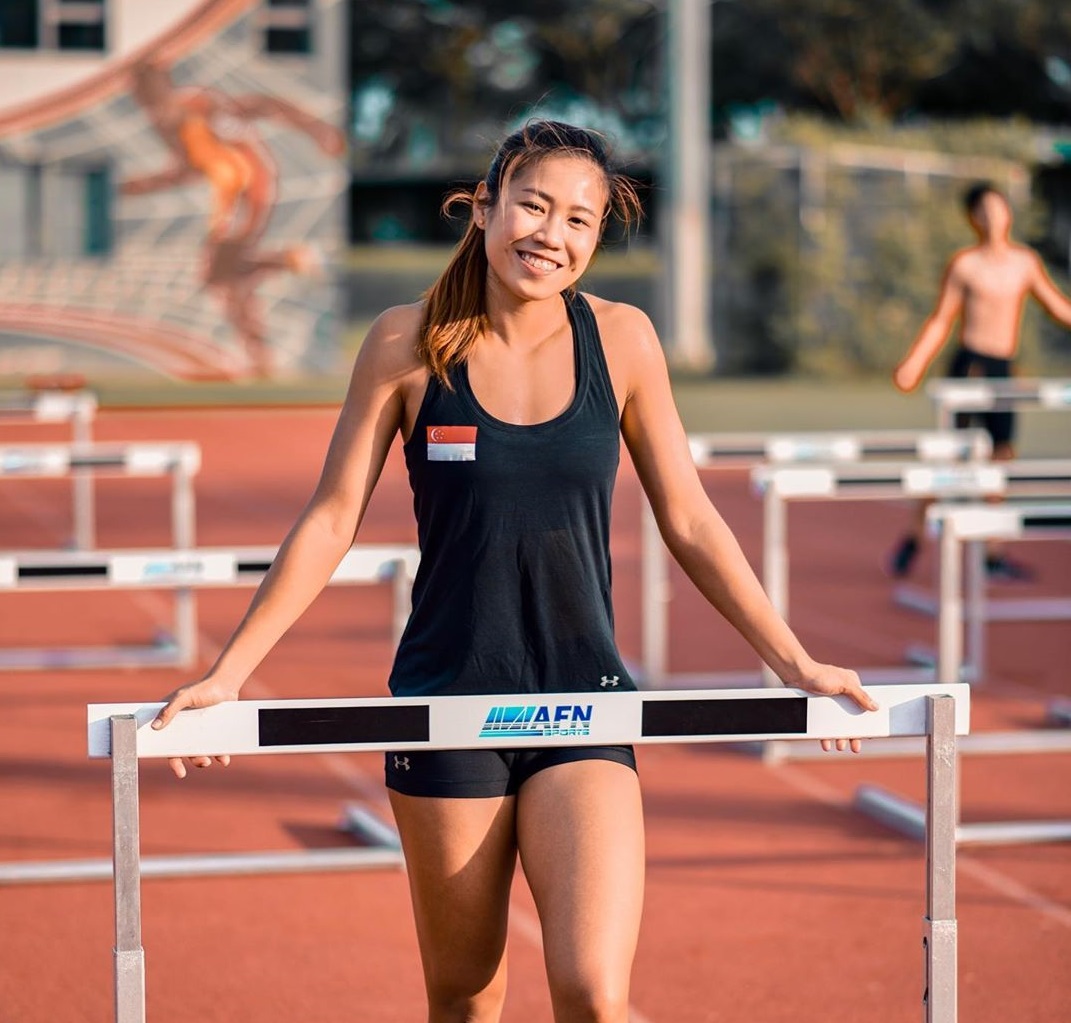
Kerstin Ong, 23
Sport: Athletics
School: SMU undergraduate, Marketing and Communications
What is your daily schedule in university like?
In SMU, we get to choose the timetable we want. There are 4 slots throughout the day, from 8am to 10pm. So you can choose when you want your classes to be. I know when my training times are, so I will choose the time slots outside my training time. If you can’t get the time slots you want, I think athletes can get Mr Eric (Song) for help. But I’m quite lucky, so far I’ve been getting the classes I wanted. Of course, you can’t just depend on the school. You’ve got to try your best to get the classes, you’ve got to be proactive as well and take your own initiative to get what you want.
I think how my school helps is that we don’t have separate lectures and tutorials – we only have one class with both lectures and tutorials combined into one. One session is about 3 hours and 15 minutes. We can take from 4-6 modules, so that means you only have 4-6 classes a week. So you can really plan your schedule well. I normally take 4-5 classes – I cannot take anything more than that, so it’s quite manageable for me so far.
What is one highlight of your student-athlete experience in university?
Every 2 years, there’s this event called the ASEAN University Games. So we get to qualify for different sports, and this is the chance where we actually get to mix with different universities altogether. 2 years ago, I went to the games in Myanmar. That was very enjoyable, especially going with a group of people who share the same interests as you in sports.
What was one major sacrifice you’ve had to make as a student-athlete?
One sacrifice that I had to make was my grades. When you spend a lot of your time training, you can’t spend all of your time studying. So, you need to know what your expectations in school are. If you want to do well in your studies, part of your sports will have to go. But if you want to do really well in sports, then of course you’ve got to sacrifice a bit of your grades. You don’t have to be a straight As student, I’m only getting maximum Bs, but I’m happy with that. I’m having a very enjoyable studies and sports life. I still go for school activities, and I even led a freshmen camp.
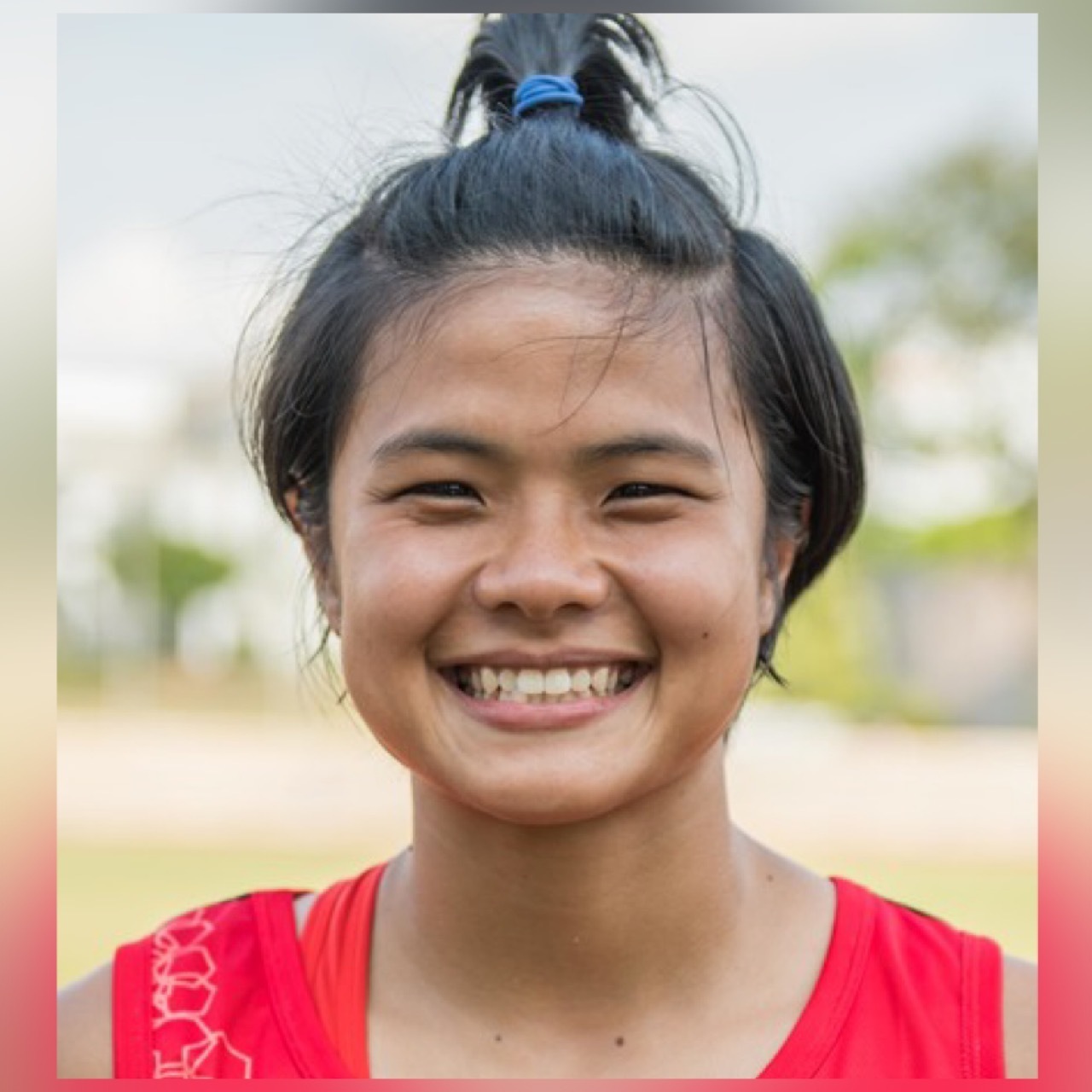
Chong Hui Min, 28
Sport: Rugby
School: NTU graduate, Social Sciences; NIE graduate
What is your daily schedule in university like?
Hui Min: I remember arranging my classes to avoid training days. On non-training days, we have to go to the gym. On training days, we train from 7pm to 930/10pm. In the day, there would be classes like tutorials and lectures, and I would make sure to get a quick nap in. I would monitor on my Fitbit how much sleep I’m getting because that’s very important for an athlete.
What is one highlight of your student-athlete experience in university?
Hui Min: One highlight for me is definitely the travelling. Previously, before I joined rugby, the furthest I went was probably Malaysia. Rugby has really allowed me to travel to many places. We have training trips as well as official competition trips. I still remember when I went to China on my first tour. I’m very fortunate and grateful for that.
What was one major sacrifice you’ve had to make as a student-athlete?
One sacrifice is definitely the social life. But I think when you don’t see your friends often, and you suddenly see them, you feel like absence makes the heart grow fonder. You have to sacrifice a bit, but when you see them, you have a lot more things to talk about, so I would say it’s not really a setback.
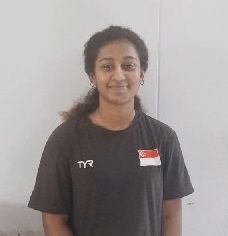
Mounisha Devi, 20
Sport: Water Polo
School: NUS undergraduate, Medicine
What is your daily schedule in university like?
For waterpolo, we have double sessions, so we train 9 times a week. We have 3 morning sessions from 6am-8am, and we train every night (except Saturdays) from 7pm-10pm.
Every morning, I wake up and go for training. I have quite a few teammates who are studying in NUS. After morning trainings, we grab breakfast, and someone will drive us or we will take the train together to school. I have lectures all the way from 830am to 12/1pm, depending on the day. I will usually have tutorials or practicals in the afternoon, and after that I go back to Stadium for my night training. In between, during my free time, I will usually take a nap because I need the rest, or try to catch up on my work.
Sleep is very important. I used to be very bad at managing my sleep time. My coach would force me to track my sleep and report back to him and our team psychologist. They worked through a lot of methods that would help me get quality sleep even though I get less sleep on some nights. They make sure that I compromise by sleeping more on other days. I do have a pretty good sleep routine right now.
What is one highlight of your student-athlete experience in university?
The fun part is travelling, because I really went to a lot of places with my teammates this year. Even though the training was very hard, we really had a lot of fun.
What was one major sacrifice you’ve had to make as a student-athlete?
I had to sacrifice a lot of social time with people in school, especially because this is my first year. I really missed out the entire orientation period. People literally knew me as the phantom in school, so if they saw me in school they’ll be really surprised to see me around. When COVID came around, our trips got cancelled, then I got to know more people. It was a very small sacrifice to make.
Topic 2: Why should I study in a local university?
Utsav: When I was 17 or 18, I was more or less set on going overseas to the US because my brother went to the US. But there were a few factors that influenced my decision to study locally:
1. Costs – You’re really going to save a lot by staying in Singapore, so I think that played a significant role.
2. Course – I started reading up a lot more about law and I really felt that that was the course I wanted to do, and I didn’t have that option in US.
3. Career – If I’m actually pursuing a legal career, an NUS degree would put me in good standing for that.
4. Culture – There would be certain differences in academic culture, and there are some merits to the local academic culture. You might also want to consider what kind of sports culture you would want in university. Another aspect would be learning to be independent if you study overseas.
5. Sports career opportunities – Because I studied locally, I was able to be within the set-up, and I think that allowed me to have a lot more opportunities than some of my peers who went overseas and could not come back for major tournaments.
Kerstin: SMU is in the town area, so that was very helpful because NUS and NTU is pretty far from my training ground at Sportshub. I also like SMU’s culture. We often get into contact with working adults in the area as well, so we are taught to always present ourselves well. I thought that this is very important when I go out to the working world, so I chose SMU because it would bridge my gap from education to career well.
Xuan: Sports has been a very big part of my life since young. I’ve been training in Singapore for a long time and at the point when I had to decide whether to go overseas or stay in Singapore, I just felt that I wasn’t ready to leave this huge part of me in Singapore. I think the environment would be very different, and I was very used to my coaches and teammates here.
I was actually quite satisfied with studying in a local university because schools like NUS and NTU are all well-known so I didn’t see going overseas as necessary.
Mounisha: Firstly, I was quite set on doing medicine and going overseas to study medicine is very expensive.
Secondly, I knew I wouldn’t be able to pursue my sport overseas as much as I can in Singapore because it’s a very different environment for waterpolo in the UK or US. Being in a team sport, teamwork is very important, so if I didn’t stay locally, I wouldn’t have been able to gel with my teammates and play together with them in a competition.
Hui Min: I didn’t really have to consider going overseas because my family wouldn’t be able to afford it. Landing in NTU was a dream to me. I was very happy when I graduated from polytechnic and realised that I could go to university, so I never really had to choose between going overseas or studying locally.
Leonard: I think one main thing is the lower financial burden (from studying locally). If you choose to study and train in Singapore, you will have the emotional and psychological support needed, especially if you’re stressed or tired from training and studying at the same time.
There is also very minimal disruption to your daily training environment. I’ve seen a lot of swimmers who have gone overseas not get the same kind of support, mainly in the US. I think there’s a good programme going on – the support from SSI and NYSI has changed and improved over the years. I think this is the best time for athletes to train and study locally. I think local universities over the years have also done a good job in supporting the athletes.